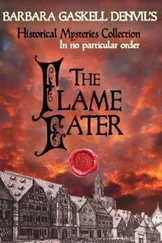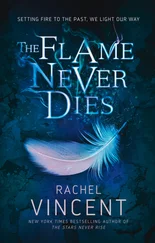It happened sometimes, the little death when Claire slept. Perhaps it happened more now that Esther was spending most nights out of the home. Her bed became one more resting ground for Claire, who toured our rooms in the night looking for the bed that would be the best staging ground for her nightly disappearance.
Her daughter’s bed, one must allow, had become her favorite site for this project.
But tonight Esther came home to be alone, missing her pretty little room, and there was trouble. I’m pretending to know what drove her. I do not know. The exercise of guessing at Esther’s actions, her thoughts, is an advanced one, requiring skills I do not have. But wherever she was and whatever she was thinking or feeling tonight, she came home, and when she did, she encountered something that caused her to give liberal voice to her feelings, to use a voice that for many weeks had been bottled up in our home.
Maybe when Esther came home she crawled into bed, only to find her mother’s dry body under the sheets. The rank-smelling hair, the bruised neck. Perhaps the mouth guard that her mother used to keep her from gnashing into the exposed nerve pulp of her teeth, perhaps this mouth guard had come unseated and was hanging from her mother’s lips like a piece of meat.
It caused her to climb up on her mother and assume a feral crouch, opening her throat for the pure injury to pour out.
By the time I arrived Claire was facedown, holding the pillow over her head. She had woken up only to swoon again. It looked at first like a posture of defense she had struck, but when I checked her she was far from seeing or knowing me.
Claire’s blackout was stubborn. I felt as if I were hacking away at the sleep that covered her. It did not help that Esther was in full tirade, producing a language so rank that I failed to breathe, lost control of my hands.
The air was clogged with speech and I fell from the bed. It was coming from everywhere, a wall of sound bearing down on my hips—the pressure seemed to be coming from inside me, something trying to force itself out—and I crumpled, started to retch.
I couldn’t block the sound with my hands, and I felt myself blacking out.
I remembered LeBov’s needle and grabbed it from my pocket. I jammed it into an ear, but missed the hole, piercing the cartilage on the outer ear. I tried again, slower, letting the tip of the needle fill the ear hole, then, when I was sure of my aim, jamming in the needle until it passed through the thinnest part of the inner ear, which presented no more resistance than a tissue.
I did this without thinking, with no sense of how much pressure was required.
If you do it right, you’ll cloud your hearing for about an hour, maybe longer , LeBov had said.
He didn’t elaborate. I didn’t ask. An hour earlier, sitting with LeBov in the hut, I didn’t think I’d drive a needle into my head so that I could deafly handle the vocal cloud of a child.
The pain was deep. For a moment I heard distant crying. A person, a bird, a siren. Warm liquid filled my ear, poured down my face.
I touched it, expecting to draw back bloody fingers, but the liquid was clear. Clear and warm.
LeBov’s needle didn’t work. I could hear perfectly from the punctured ear. I only hollowly contemplated approaching the other ear with the needle, ramming it in to balance the pain.
Esther had stopped speaking by then anyway. My activities with the needle had rendered her mute. She stood watching me, a mostly convincing look of fear on her face. An effective display of crying, soft crying that she seemed to want to suppress, came next. She performed her grief for my benefit, but I had other things to do. The house was calm now. The only sounds were from our Claire, who mumbled something from the bed, rolled deeper into her covers.
These were such reassuring sounds to me, the sounds of Claire not yet gone.
Esther crouched next to me, her finger crossing her lips to show she would not speak. A sign I once might have trusted. She brought her shirttail up to dab at my ear, to wipe free some of the discharge, and it seemed for a moment that she was intent on hugging me, but I pulled her hand away. I pulled it away, stood up myself, and walked strongly with my daughter out of her room, dragging her with me, through our house and out the front door, where I left her alone in the yard.
I would like to say that love shows itself in strange ways, but that would not be true in this case. Sometimes love refuses to show itself at all. It remains perfectly hidden. One spends a lifetime concealing it. There is an art to this. To conceal love is, in its way, the most sophisticated kind of smallwork there is.
Esther stood outside our house with her head down, shoulders small.
I rushed her again, moved my daughter yet farther into the yard, and she slumped over me, let herself be carried. At the sidewalk I dropped her and with my hands I made the most terrible gesture I could.
It was the most fluent I’d ever been without speech.
Stay, stay there. Do not come in this house again. You are forbidden from here. We do not know you .
Esther looked up at me and nodded. With her little finger she crossed her heart.
I would not be fooled by her ministrations, such conspicuous acts of tenderness designed to fool us into letting down our guard. She should have known better. Maybe now she would.
Tonight I needed to protect my home and that meant keeping people like her—blood relation or not—well clear of it. If Esther tried to return I would be ready for her. I would meet her with everything I had.
We drove out the next morning. Our breath was scarce and we were bruising in dark pools beneath the skin. A small wound on my leg failed to bleed. It opened like the mouth of a baby. From the gash came the faintest wheeze of sound. I flinched when I heard it, braced for it to sicken me, too.
People swarmed the street. I could not see their faces. Our evacuation was orderly and our denial so final, we were spared overt displays of grief. The day was hot, there was weeping down the hill, some other person’s weeping, and in our own yard, under the fractured shade of the oldest tree on our block, such a clutter of moths bothered the air. These were the slow, bird-size moths, so awkward they may as well have been tagged and numbered.
My face felt so heavy, I thought I could remove it, step on it until it composted. I coupled my hip bag of adrenaline with boiled-down Semantiril to queer any speech sounds I might hear. I needed speech estranged into grunts and huffs. Even these could command people into action. I required speech submerged in fluid, warbled, buried in the ground. The Semantiril got me close. It brought foam into the holes, filling in whatever silence was left inside a word. What I heard were solid blocks of tone, like the test sounds from an emergency broadcast.
Throughout the day I paused while loading the car to huff these vapors from an oily lunch bag.
The last signs of life flickered inside Claire. That much and no more. When she looked at me I felt the high disgrace of being known for what I am.
Outside the house was a whiteout of silence, the sound of a whole neighborhood holding its breath. I kept my head down, vowed not to see. If I did not regard others in their shame, their haste, perhaps they would spare me from seeing mine.
Once I had Claire in the car, I noticed she was clutching the letter she’d written to Esther. Somehow she’d found the strength to sit down and write a final message. It was sealed and I was not to read it or ask about it. Fairly simple parameters to follow. The envelope was wrinkled with sweat, with whatever leaked freely from Claire.
I wrote no such letter myself. There was something blackening to the act of writing words, like carving into flesh. My hand felt foreign. It would not cooperate. And if I did write anything, it looked like a drawing dismantled into too many pieces. I could make the parts but I could not put the parts together.
Читать дальше











